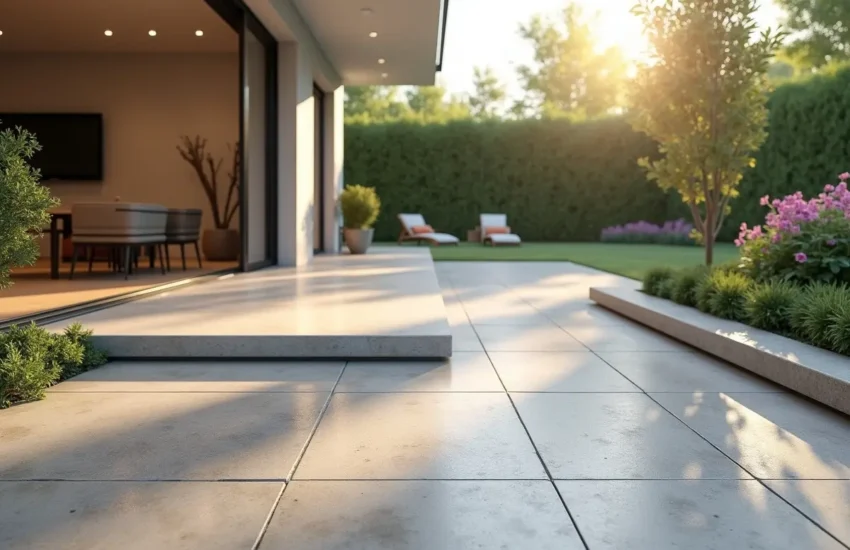
When considering housing options, evaluating the pros and cons of new construction homes is important. It offers a clean slate where you can be the first to enjoy immaculate floors, fresh paint, and modern fixtures. You also get the chance to put your personal touch on the design before you’ve even moved in. However, with all of these perks come certain challenges, so it’s important to look at the bigger picture before deciding if a newly built property suits your lifestyle. Whether you’re upgrading to your dream home or dipping your toes into the real estate market for the first time, it helps to know what lies ahead when pursuing a cutting-edge residence.
Contents
Why New Builds Attract Modern Buyers
Many people are drawn to a freshly constructed home because it feels personalized right from the start. You can often select features such as your flooring style, countertop materials, or even the color of each room. Some builders will let you choose from a range of upgrades like stainless steel appliances, luxurious backsplashes, and advanced lighting systems. This level of customization can help make your home feel unique to you.
Quality control is another big selling point for a newly built property. Modern resources and up-to-date building codes can lead to fewer structural repairs in the near term. If you’re the first person to occupy the space, you also know exactly how the home has been used and cared for an advantage you don’t always get with older properties. It’s like taking a car off the lot that has never been driven; you’re free from worrying about prior wear and tear.
Fresh Interiors and Advanced Amenities
With a never-before-lived-in residence, you typically get brand-new appliances and cutting-edge amenities. Contemporary construction often incorporates energy-efficient windows, better insulation, and even solar panel options if that’s something you request. These modern home building trends make your living space more efficient, and they can help keep your monthly costs steady.
A new environment also means modern design elements like open floor plans, sleek kitchens, and updated technology. Features such as a roomy walk-in shower, sizable kitchen island, or pre-installed home automation systems can enhance daily life. These touches ensure you’re moving into a place that meets today’s standards, and possibly tomorrow’s needs, too.
Fewer Maintenance Concerns
Repairs can be a headache, especially if you have to tackle major systems like HVAC or plumbing. When you move into a newly constructed home, the cabinets, counters, and water heater are all fresh out of the box. This can lead to lower maintenance costs during those initial years. For those who don’t want to navigate unexpected breakdowns, having everything in mint condition can be a comforting thought.
There’s also the possibility of extended warranties. Certain builders stand by their work for a period of time, covering potential issues that might emerge. That extra level of security can help you feel more at ease, knowing you’re not alone if something needs a fix early on. Just be sure to ask your builder for specific warranty details before signing anything.
Potential Drawbacks To Keep In Mind
While many benefits come from moving into a freshly designed home, no property is perfect. Building materials have soared in cost in certain markets, and these expenses can be passed directly to buyers. It’s also common to discover that finishing touches like landscaping or fencing may be extra. If you’re on a tight budget, the cost of adding lawns, sprinklers, or a backyard patio might push you beyond your comfort zone.
Location can be another consideration. New construction neighborhoods are often built on the outskirts of established areas, so you could face a longer commute. Essential services or entertainment options might be sparse, especially if the surrounding community hasn’t fully developed. For some homebuyers, that trade-off can be an opportunity to settle in a quiet, up-and-coming area. For others, it might be a deal-breaker.
Higher Price Tag
That fresh construction smell can come with a higher price point compared to similar-sized older homes. Since you’re the first occupant, you’re paying for brand-new finishes and possibly some custom work. Over the long run, the difference in price might pay off in peace of mind, but it’s still a sizable commitment up front.
You’ll also want to explore how financing might differ for a custom home. Mortgage lenders sometimes require more documentation than for a traditional resale, especially if you’re involved in the building process. Extra steps can stretch out your timeline, so planning and patience become crucial.
Possible Delays
Builders frequently have several projects going on at once, so your move-in date might shift. Weather issues or supply chain disruptions can also influence construction schedules. It’s wise to keep an open mind regarding your anticipated completion date. If you need to move by a certain deadline, it’s worth asking the builder about average project timelines.
Unexpected factors can arise once building begins. Whether it’s changes to the project scope or last-minute design tweaks, each twist may add days or weeks to the schedule. While some people have no trouble with flexibility, others might be frustrated by waiting for finishing touches. Having a place to stay, just in case your completion date slips, can prevent added stress.
Helpful Tips When Considering a Newly Built Home
Purchasing a brand-new residence is a major decision that can impact your financial outlook for years. Taking a mindful approach is key. One of the best ways to feel confident about your new investment is by researching every aspect in advance. Look beyond the glossy brochure and model home, and consider the overall neighborhood and future town plans. By doing your homework, you’ll have a better sense of what it really means to own a modern property.
Remember that new doesn’t always mean flawless. Human error can play a role in any project, so be prepared to pay attention to the quality. It’s smart to schedule an independent inspection. That way, you can make sure everything reflects the craftsmanship you expect.
Working With the Right Builder
If you’re planning to buy a newly constructed place, finding the right builder is essential. Ask about their track record, read reviews, and even visit other communities they’ve completed. You may notice patterns such as consistently high-quality finishes or quick mediations for any issues. These indicators can be reassuring, especially if you’re devoting a large portion of your savings to the project.
Prioritize open communication. If your builder is responsive to your calls or emails and willing to talk through decisions, it’s a good sign you’ll have a productive relationship. On the other hand, if they dismiss your questions, you may soon feel out of the loop. Staying informed can help you spot and fix any problems before they grow too big.
Focusing on Location and Community
A lot of newly built homes appear in master-planned communities with neat sidewalks and uniform architecture. Though it might lack the diverse character you find in older neighborhoods, these planned spaces often include amenities like community pools, playgrounds, or fitness centers. Make sure you’re comfortable with any homeowners association rules that might apply. Some HOAs have strict guidelines on landscaping, parking, or outdoor décor.
Keep in mind that growth in a new development can be both a blessing and a curse. Increased construction over time may lead to noise and heavy traffic during the day. Yet, it could also mean rises in home values, especially if the entire subdivision becomes more desirable once all construction wraps up. Think about your tolerance for nearby job sites before committing.
Looking at Energy Efficiency and Warranties
Builders often tout their energy-saving features to entice buyers who want to keep costs down. Today’s new construction often incorporates advanced furnaces, high-rated insulation, and efficient windows. These elements can lead to smaller utility bills compared to older homes with outdated systems. If green living is high on your priority list, check for available add-ons such as solar panel installations or smart thermostats.
While these energy upgrades can cost more initially, they often pay for themselves over time. That’s something to consider if you see yourself in the house for a while. With rising energy costs, a well-insulated structure can be a real asset.
Long-Term Value of Green Features
Opting for energy-conscious enhancements can pay off in more ways than one. If you ever decide to sell, prospective buyers might be attracted to a lower carbon footprint. Features like geothermal heating or water-saving fixtures can also demonstrate a forward-thinking mindset. These offerings can set your property apart in a competitive real estate market.
An energy-efficient property can help you reduce your dependence on the grid, meaning fewer electric bill surprises. Even if you plan on staying short-term, you’ll likely appreciate the monthly savings during your time there. Over the course of several years, those reduced energy expenses might add up to a substantial amount.
Warranty Protections and Peace of Mind
One of the greatest selling points of a new construction home can be the warranty coverage that often comes with it. If a major system fails earlier than expected, you might find relief in knowing the builder has obligations to fix it. Warranties typically vary in length and coverage, so it’s a good idea to read all the details upfront. Don’t assume every inch of the house is guaranteed.
Some warranties might last for one year on workmanship, while critical structural elements like the foundation could be covered for a decade. For that reason, it’s wise to file any complaints or service requests promptly. Many warranties have strict deadlines for reporting issues. Make sure you maintain your property according to the guidelines so you don’t void any part of the coverage. The builder might require periodic checkups or documented upkeep on roofing or HVAC systems to keep the agreement valid.
With careful planning, the right builder, and a willingness to accept certain extra costs, a brand-new dwelling can be a delightful place to call home. By balancing the thrill of a modern layout with an awareness of potential pitfalls, you give yourself the best chance of success. There’s something uniquely satisfying about stepping into a space no one has lived in before and making it your own. However, the decision to buy a freshly constructed residence should always align with your financial capacities and long-term goals, ensuring you enjoy every moment in your pristine living environment.



Leave a Reply
You must be logged in to post a comment.